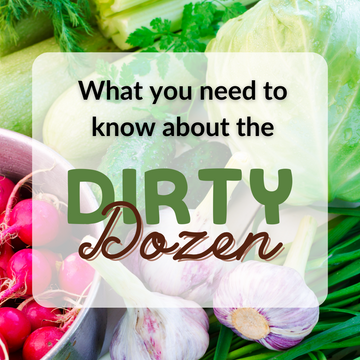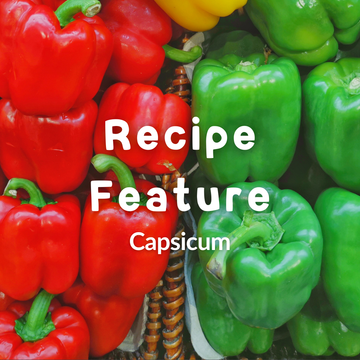Have you ever heard of the Dirty Dozen or the Clean Fifteen?
These terms and lists are a Trademark of the Environmental Working Group, based in the United States, and are reviewed yearly.
The Dirty Dozen lists the fruits & veggies that tested the highest in residual pesticides and herbicides, therefore they are most recommended to eat organic if possible.
The Clean Fifteen lists the fruits & veggies that tested the lowest in residual pesticides and herbicides, therefore if you must choose some produce to eat that's been grown conventionally, these items are generally considered the safest choice.
So what made the lists this year??
The 2023 Dirty Dozen and food to eat organic includes:
1. Strawberries
2. Spinach
3. Kale, mustard & collard greens
4. Peaches
5. Pears
6. Nectarines
7. Apples
8. Grapes
9. Capsicum and hot chilis
10. Cherries
11. Blueberries
12. Green Beans
In fact, the EWG reported that a total of 210 pesticides were found on Dirty Dozen items. Of those, over 50 different pesticides were detected on every type of crop on the list, except cherries.
Since many peer-reviewed studies have documented links between pesticide consumption and health issues, this is obviously a scary find!
The good news is that choosing organic fruits and vegetables, especially those listed above, can have an almost immediate reflection on the amount of pesticides found in the consumers body. The sooner and more often you can choose to eat certified organic fruit and vegetables, the better!
The 2023 Clean Fifteen and safer choices include:
1. Avocados
2. Corn
3. Pineapples
4. Onions
5. Papaya
6. Green peas (frozen)
7. Asparagus
8. Honeydew melon
9. Asparagus
10. Cabbage
11. Mushrooms
12. Mangoes
13. Sweet Potatoes
14. Watermelon
15. Carrots
What's pretty cool is that almost 65% of Clean Fifteen fruit and vegetable samples had no detectable pesticide residues. This means that if you must choose to eat some conventionally grown foods, these are generally considered to be the safest choices.
It's important to note that all testing is done in the United States and may not be a direct reflection on Australian grown produce, since different laws and regulations may apply.
The testing also does cover all pesticides used in crop production. For example, glyphosate (Roundup) is the most heavily used pesticide in the USA, and it is routinely found in high levels on several grains and beans, such as oats and chickpeas.
So what does this actually mean for you?
It's been scientifically documented time and time again the health benefits of choosing certified organic produce. The EWG's Dirty Dozen and Clean Fifteen can be helpful that if for some reason, be it cost, accessibility, or something else, you're not able to access 100% certified organic food. They are a framework that will guide you towards the safest choices.
Source: https://www.ewg.org/foodnews/summary.php




